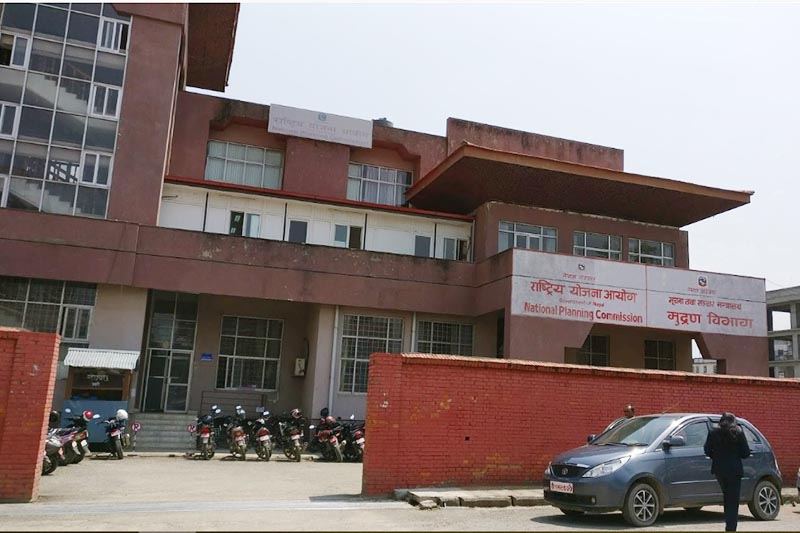Ministries asked to submit details of projects
Kathmandu, February 3
The National Planning Commission (NPC) — the apex body that frames the country’s development plans and policies — has asked all ministries to submit the details of ongoing projects and new projects to be incorporated in the budget for the upcoming fiscal year 2020-21 within February 27.
NPC has sought project details for the upcoming fiscal budget based on the provision of Financial Procedure and Fiscal Accountability Act, 2019, which delegates the authority to the apex planning body of the government for assessment, pre-evaluation (appraisal) and examination of the projects and programmes and their concurrence for execution at the federal level through establishment of the project bank on the basis of various analytical approaches, including cost-benefit analysis.
Moreover, the legislation states that only projects approved and authenticated by NPC and included in the project bank will be incorporated in the budget. NPC plans to start implementing the ‘project bank’ concept from the upcoming fiscal budget and details of projects to be included in the budget have been sought from ministries accordingly, informed Sushil Bhatta, an NPC member.
The commission plans to make the project bank fully functional by 2022-23.
“Implementation of this concept in a full-fledged manner will discourage the tendency of incorporating pork barrel projects in the budget. We will start its implementation from the budget for upcoming fiscal year itself,” said Bhatta.
Along with this, implementation of the project bank concept will also ensure good governance, enhance decision-making and credibility of development projects, resulting in desired outcomes from public expenditure in development projects, opined Bhatta.
As per standards set by NPC, projects to be incorporated in the project bank will have to pass three different stages — project identification, project appraisal and project selection and prioritisation.
The project identification process involves five steps — idea generation, strategic fit assessment, preferred option selection, pre-feasibility study and project concept note.
Following the approval of the project concept note by NPC, line ministries are required to conduct feasibility study and/or detailed project report (DPR) for establishing project viability, which is done through the project appraisal process. The final output of this stage is project proposal of each individual project.
Project appraisal is a structured way of assessing a project to check its viability and to establish the justification of the project for allocation of resources it demands for implementation.
The third stage that a project must pass to be incorporated in the project bank is the project selection and prioritisation. This final stage is an important and crucial stage in project portfolio management to ensure allocation efficiency in development plans. This stage establishes a strong linkage of projects with sector development strategies and their integration in the national development plans. This integration requires prioritisation of projects on the basis of their contribution to national development and their selection based on available resources.
“Implementation of the project bank will not only be important in discouraging pork barrel projects but will also help expedite project construction and development activities,” added Bhatta.
NPC plans to implement ‘project bank’ concept through the next fiscal budget






